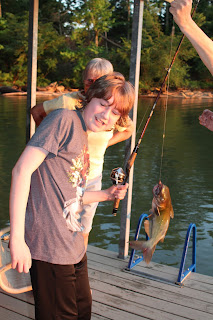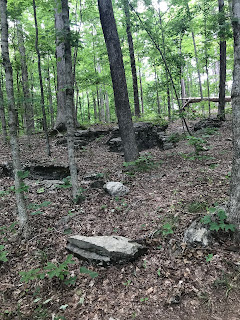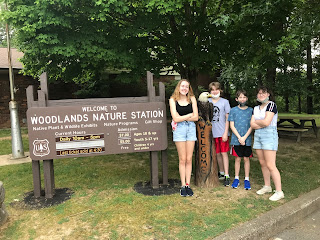There came a time, I think it was in April, or maybe May, when I decided that I didn't need to be "friends" with certain people I know.
Heck, maybe I had made this decision by late March.
For a long time prior to this, there were people I was "friends" with whom I didn't actually like.
Mostly, they posted stuff like "Liberals this, that, and the other."
As if they know the hearts and minds of every single person who considers her/himself liberal-leaning.
Or they would post stuff about what Thomas Jefferson said about the republic, even though I know they didn't study history; they majored in business administration and maybe read a book or two about Jefferson.
Or they would argue with me, but arguing with me wasn't the problem.
It was their name-calling and willful fucking ignorance.
I can handle someone arguing me if they are presenting data or analysis or something more than, "But, but" and "Ok, then how about..."
I decided that in the world before FB existed, I would only raise my hand to wave at these people if I saw them in the neighborhood.
I wouldn't spend any time with them beyond a courtesy greeting once a year.
If I saw them out in public and knew they didn't see me, I'd probably also occasionally turn around and visit a different section of Home Depot to avoid speaking with them.
There is a whole mess of family that I am unfollowing and getting fairly close to unfriending since I haven't seen many of them since I was a child.
And they continue to post ridiculous stuff like "I don't see color" and "Christians are persecuted in the US" and other things that make me want to roll my eyes until they get stuck in the back of my head.
I had thought to myself that I was being open-minded by being "friends" with people who I strongly disagree with, but I finally decided that I was simply being driven crazy by people I don't actually care about.
And if I was gonna die during a pandemic or watch people die during a pandemic, I wasn't going to spend one extra second more than I had to being subjected to viewpoints that just make me angry.
I am all for having peaceful conversations because I am willing to learn from others and listen, but the truth is that there are some people whose minds are closed.
Having an argument with them is simply screaming into a void of nonsense or stupidity or derangement.
I determined that my own mental health was more important to me than making an effort to be "open-minded."
(I also deleted dead people because that just seems obvious.)
Heck, maybe I had made this decision by late March.
For a long time prior to this, there were people I was "friends" with whom I didn't actually like.
Mostly, they posted stuff like "Liberals this, that, and the other."
As if they know the hearts and minds of every single person who considers her/himself liberal-leaning.
Or they would post stuff about what Thomas Jefferson said about the republic, even though I know they didn't study history; they majored in business administration and maybe read a book or two about Jefferson.
Or they would argue with me, but arguing with me wasn't the problem.
It was their name-calling and willful fucking ignorance.
I can handle someone arguing me if they are presenting data or analysis or something more than, "But, but" and "Ok, then how about..."
I decided that in the world before FB existed, I would only raise my hand to wave at these people if I saw them in the neighborhood.
I wouldn't spend any time with them beyond a courtesy greeting once a year.
If I saw them out in public and knew they didn't see me, I'd probably also occasionally turn around and visit a different section of Home Depot to avoid speaking with them.
There is a whole mess of family that I am unfollowing and getting fairly close to unfriending since I haven't seen many of them since I was a child.
And they continue to post ridiculous stuff like "I don't see color" and "Christians are persecuted in the US" and other things that make me want to roll my eyes until they get stuck in the back of my head.
I had thought to myself that I was being open-minded by being "friends" with people who I strongly disagree with, but I finally decided that I was simply being driven crazy by people I don't actually care about.
And if I was gonna die during a pandemic or watch people die during a pandemic, I wasn't going to spend one extra second more than I had to being subjected to viewpoints that just make me angry.
I am all for having peaceful conversations because I am willing to learn from others and listen, but the truth is that there are some people whose minds are closed.
Having an argument with them is simply screaming into a void of nonsense or stupidity or derangement.
I determined that my own mental health was more important to me than making an effort to be "open-minded."
(I also deleted dead people because that just seems obvious.)




















